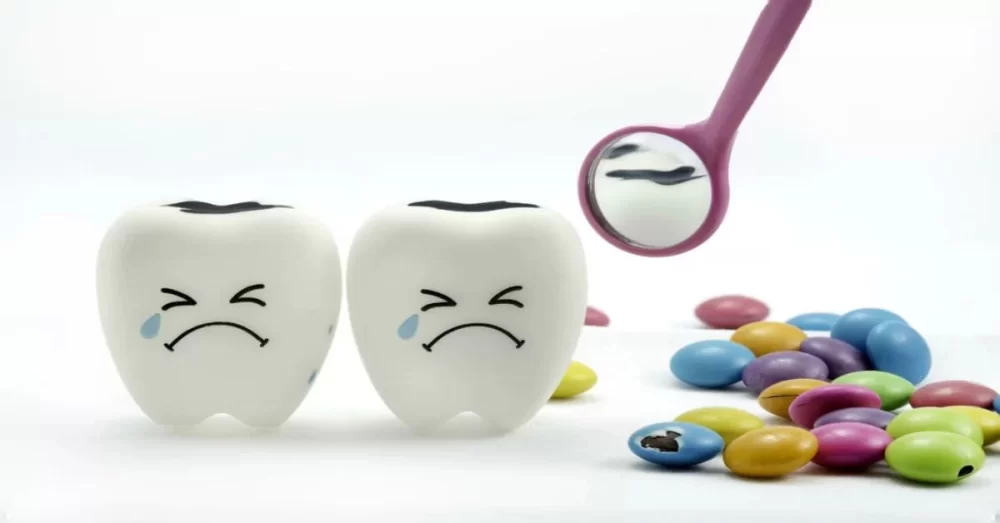
The Truth About Sugar and Tooth Decay Prevention: What You Need to Know
- 1. Why Sugar Causes Tooth Decay
- 2. The Link Between Diet and Dental Health
- 3. What You Can Do to Prevent Tooth Decay
- 4. Debunking Myths About Sugar and Teeth
- 5. The Role of Professional Dental Care in Prevention
It’s no secret that sugar plays a significant role in the development of tooth decay. But why exactly does sugar cause harm to your teeth? The process begins when sugar is consumed, whether in the form of candy, soda, or even carbohydrates. Bacteria in your mouth feed on sugar and produce acid as a byproduct. This acid wears down the enamel of your teeth, leading to cavities and tooth decay.
The more frequently you eat sugary foods, the more often your teeth are exposed to these harmful acids. Over time, this can result in significant damage to the tooth's enamel, leading to the development of cavities and other dental problems. It's crucial to recognize the importance of moderation when it comes to sugar intake and take proactive measures to protect your teeth.
Sugar is not the only dietary factor that affects your dental health. A balanced diet rich in essential vitamins and minerals plays a vital role in keeping your teeth strong and healthy. Foods that are high in calcium, like dairy products, and those rich in vitamin D, like eggs and fatty fish, help strengthen your tooth enamel and prevent decay.
On the flip side, frequent snacking on sugary or acidic foods can increase your risk of cavities. Even seemingly innocent foods like dried fruits or fruit juices can contain high amounts of sugar that contribute to enamel erosion. So, understanding the relationship between diet and oral health is key to maintaining a healthy mouth.
Preventing tooth decay isn’t just about limiting sugar consumption. There are several practical steps you can take to keep your teeth healthy and prevent damage caused by sugar:
- Brush and Floss Regularly: Brushing your teeth at least twice a day and flossing once a day helps remove food particles and bacteria that can contribute to decay.
- Use Fluoride Toothpaste: Fluoride strengthens tooth enamel, making it more resistant to decay. Always choose toothpaste that contains fluoride for maximum protection.
- Rinse with Mouthwash: An antimicrobial mouthwash can help kill harmful bacteria and prevent plaque buildup, which can lead to cavities.
- Drink Plenty of Water: Drinking water helps wash away food particles and bacteria, preventing them from sticking to your teeth.
- Limit Sugary Snacks: If you do consume sugar, try to do so during meal times when saliva production is at its peak. This helps neutralize the acids produced by sugar.
These steps, combined with regular dental checkups, will help you maintain strong, healthy teeth and minimize the risk of tooth decay.
There are many misconceptions surrounding sugar and tooth decay. One common myth is that sugar directly causes cavities, but the reality is a bit more complicated. It’s not just the sugar itself, but the frequency of sugar intake that leads to tooth decay. For example, sipping on sugary drinks throughout the day is far more damaging than consuming sugar in a single sitting because your teeth are constantly exposed to harmful acids.
Another myth is that sugar-free or diet products are always safe for your teeth. While they may lack sugar, many sugar-free products contain artificial sweeteners or acids that can still contribute to enamel erosion over time. It’s essential to be mindful of the ingredients in these products and how they may affect your oral health.
While maintaining good oral hygiene at home is crucial, professional dental care plays an equally important role in preventing tooth decay. Regular dental checkups allow your dentist to catch early signs of decay, gum disease, or other oral health issues before they become serious problems.
During a routine visit, your dentist will clean your teeth, remove plaque buildup, and may even apply fluoride treatments to strengthen your enamel. Additionally, your dentist can provide personalized advice on how to improve your oral hygiene habits and make better dietary choices for your teeth. If you’re looking for a reliable dental care provider, consider visiting Dentistry Toothtruth, where you can access a variety of services to protect your teeth from decay and maintain a healthy smile.







 Noll Family Dentistry4.0 (95 review)
Noll Family Dentistry4.0 (95 review) Dr. David R. Resch DDS0.0 (0 review)
Dr. David R. Resch DDS0.0 (0 review) Decatur Orthodontics5.0 (379 review)
Decatur Orthodontics5.0 (379 review) Reynolds, Clinton DDS5.0 (24 review)
Reynolds, Clinton DDS5.0 (24 review) Gentle Dental Rio Vista4.0 (152 review)
Gentle Dental Rio Vista4.0 (152 review) Little Big Smiles Pediatric Dentistry of Fort Myers5.0 (130 review)
Little Big Smiles Pediatric Dentistry of Fort Myers5.0 (130 review) The Importance of Oral Health Education During Pregnancy for a Healthy Pregnancy
The Importance of Oral Health Education During Pregnancy for a Healthy Pregnancy Best Tips for Brushing Your Teeth Properly for Healthy Gums: Essential Techniques for Oral Health
Best Tips for Brushing Your Teeth Properly for Healthy Gums: Essential Techniques for Oral Health Why Skipping Dental Checkups Can Lead to Bigger Oral Health Problems
Why Skipping Dental Checkups Can Lead to Bigger Oral Health Problems Advantages of Porcelain Dental Restorations
Advantages of Porcelain Dental Restorations How Can Diabetes Cause Tooth and Gum Problems? Preventing and Managing Oral Health Issues
How Can Diabetes Cause Tooth and Gum Problems? Preventing and Managing Oral Health Issues Healthy Habits for Promoting Good Oral Health and Hygiene: Tips for a Healthy Smile
Healthy Habits for Promoting Good Oral Health and Hygiene: Tips for a Healthy Smile